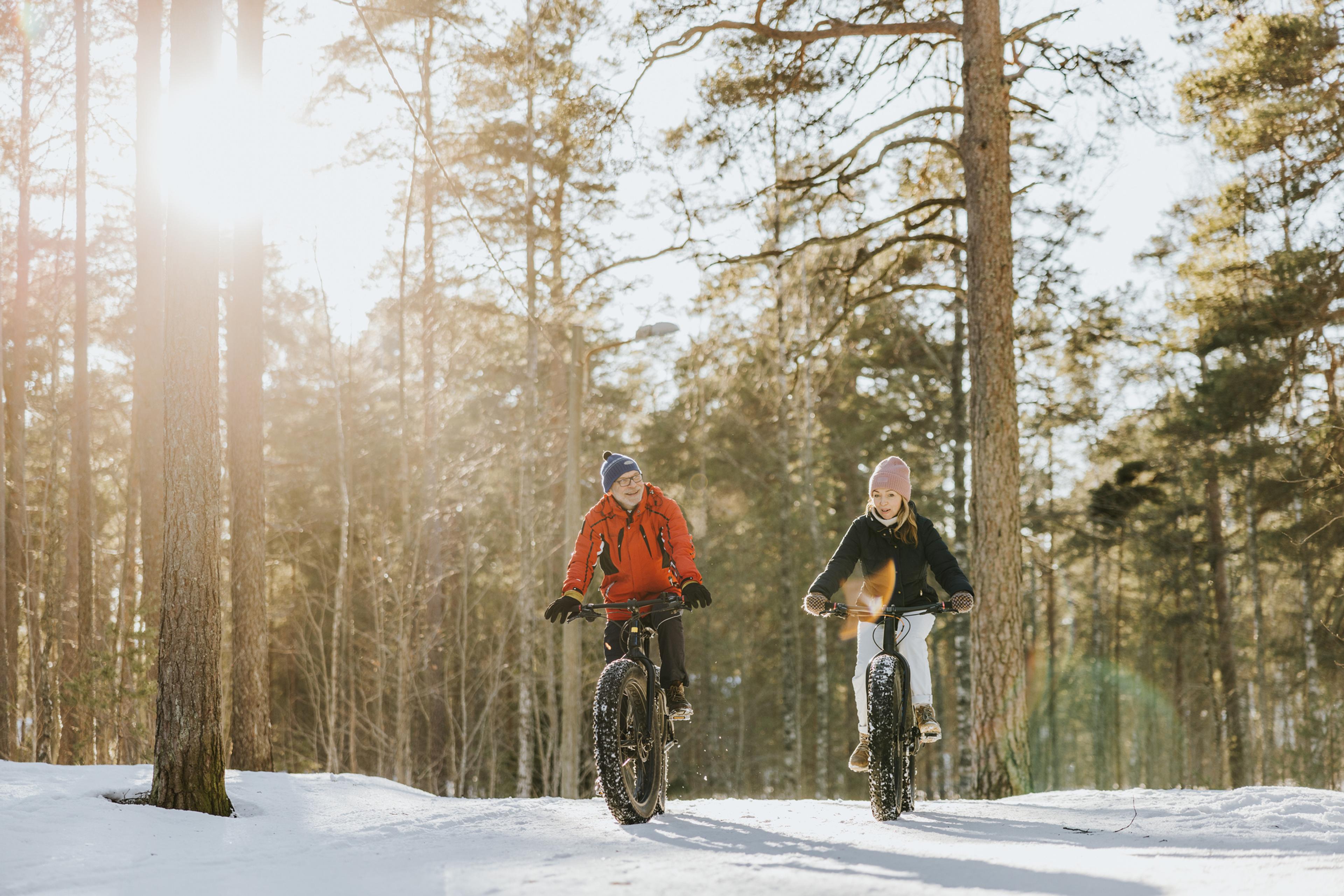Ways to Combat Winter Restlessness

Dr. Kristyn Gregory
| 4 min read

Once the daytime temperatures slip below freezing and snow is in the forecast, there is no denying winter has settled in. Snow can make a beautiful blanket on lawns and trees.
But months of cold air, icy sidewalks and snowy roads often put a limit on outdoor activities. It’s hard for some people to feel enthusiastic about going outdoors for a little exercise if they must deal with freezing wind chills and worry about slipping on an icy sidewalk. It’s during this time that winter restlessness can creep in.
Feeling restless or out of sorts in the winter is more common than one might think. These “winter blues” emotions can affect 10% to 20% of the population during the season, according to experts. The impacts can be physical as well as mental. Some signs of winter restlessness include:
- A drop in serotonin levels, leading to feelings of sadness
- Interruption of the regular sleep-wake cycle, leading to poor sleep
- Oversleeping
- Overeating
- Craving carbohydrates
- Loss of interest in things one normally likes to do
For people experiencing winter restlessness, there are several ways to push out of this rut. Most of these strategies include making deliberate choices to plan physical activities that benefit their bodies, and strengthening social connections that offer a mental boost.
Spend time outside
This may not be people’s go-to activity in the winter months, but the benefits of bundling up and heading outdoors are worth it. Studies have linked time spent walking outside to lower levels of stress. The same goes for hearing the sounds of nature, like bird songs and running water in creeks and streams. It can lead to a decrease in blood pressure. People who spend time outdoors also have reduced activity in the parts of their brain responsible for negative emotions.
Pick a winter sport, or two
Winter in Michigan is no time to hibernate. Even if the weather limits the amount of time spent outside, there are plenty of sports to try this winter. And trying any of these with friends makes it a fun, social activity that’s good for mental health.
- Fat-tire biking: Biking on a cushion of snow is a winter experience that’s easy to try. There are dozens of trails that allow fat-tire bikes across Michigan, and these bikes can also be rented in most cities and at winter resorts. For winter bike trails, check here.
- Snowshoeing: A favorite among the silent sport crowd, this is as easy as walking. Strap winter boots into a pair of wide snowshoes, pick up a pair of poles for better balance, and head out on any trail for an adventure.
- Cross-country skiing: Flying down a ski slope may be lots of fun, but don’t discount the beauty of gliding along a cross-country ski trail in winter. It’s great exercise and gives people time to enjoy being in nature.
As with any type of physical activity, talk with a health care provider before trying something new.
Layer up
Prepare for the cold temperatures mentally and physically by layering enough clothing and outerwear to stay cozy. Don’t skimp on this part. Cold hands and feet don’t make people feel enthusiastic about embracing winter.
- Wear synthetic materials for layering, which will trap heat better than cotton. Have an insulating middle layer topped by a water and wind-proof jacket.
- Wear hats and mittens. Prone to cold hands? Use glove liners, too, or tuck heat packets into gloves or mittens.
- Warm socks are a must, as well as boots with good traction. If it’s icy, use slip-on traction cleats for safety.
Try something new indoors
If winter sports are out of reach, consider trying a new hobby or different experience indoors. Meet up with an old friend to test out a new restaurant, or try a different type of workout class together. Explore a new museum, or take a day trip to a nearby town to check out the local sites. Couples could plan a date night to try a new indoor sport together.
Declutter and organize
Individuals could also choose to make the most of the indoor time by taking on the task of decluttering and organizing areas of their homes. Removing clutter and improving organization can help reduce stress and make everyday life simpler.
Winter can be one of the most difficult seasons to manage, as the weather can limit our mobility in ways that can affect our mental health. By consciously making an effort to try new things and get outdoors safely, individuals can help themselves to feel less restless and more satisfied.
Kristyn Gregory, D.O., is a medical director of behavioral health at Blue Cross Blue Shield of Michigan. For more health news and information, visit MIBluesPerspectives.com.
Keep reading:
Photo credit: Getty Images





